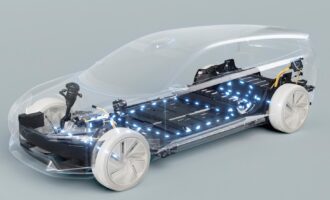
OEMs to invest in heavy-duty truck e-charging network in Europe
The three leading commercial vehicle manufacturers — TRATON GROUP, Daimler Truck and the Volvo Group — have signed a letter of intent to set up and operate a public high-performance charging network for battery-electric heavy-duty long-distance trucks and coaches in Europe. The parties are pursuing the goal of initiating and significantly accelerating the construction of a publicly accessible charging infrastructure. On the one hand, they want to strengthen customer confidence in electrification and, on the other hand, make a clear contribution to climate-neutral transport in the EU.
The agreement forms the basis for the establishment of a future joint venture, which is to be held equally by the three parties. The joint venture is scheduled to start operating in 2022. The parties initially intend to jointly invest EUR500 million (USD593 million) in order to set up at least 1,700 high-performance charging points within five years of the establishment of the joint venture near motorways as well as at logistics hubs and unloading points. The charging points are to be operated with green electricity. Additional partners as well as public funding should help to significantly increase the number of charging points. The planned joint venture is to be based in Amsterdam, The Netherlands, and will operate independently.
With the future joint venture, the parties want to pave the way for the implementation of the European Union’s Green Deal for climate-neutral freight transport by 2050: on the one hand by providing the necessary infrastructure, on the other hand by focusing on green electricity at the charging points.
With their joint project, TRATON GROUP, Daimler Truck and the Volvo Group are addressing the urgently needed establishment of a high-performance charging network to support truck fleet operators in the transition to CO 2 -neutral transport solutions – especially in heavy long-distance transport.
A high-performance charging infrastructure for long-distance traffic is an economically sensible way of significantly reducing CO 2 emissions in a short period of time, the partners said in a statement.









